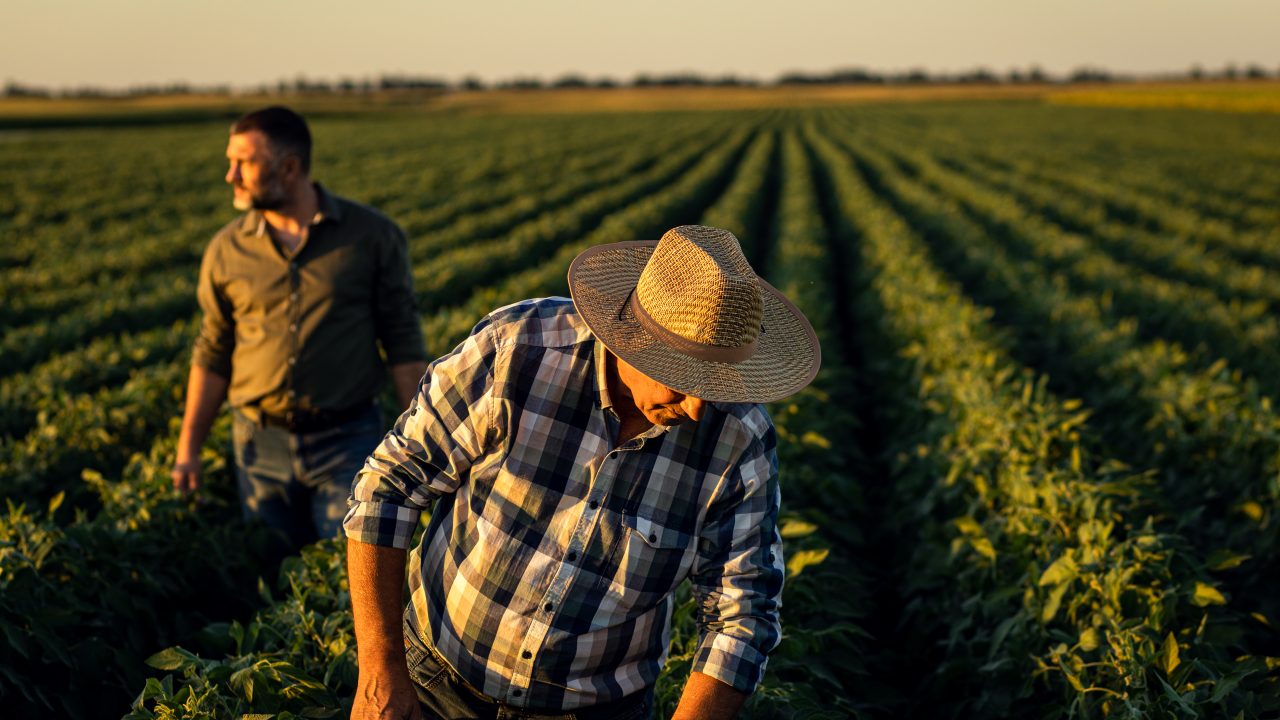Food & Climate
America-China trade war will have a disastrous effect on U.S. agricultural producers.
The U.S. agricultural producers are bracing for the potential of tens of billions of dollars in losses after China announced plans to increase tariffs on all American goods to 84% after President Donald Trump raised duties on Chinese imports to 104%.
While Trump retreated for most of countries and paused the new tariffs 3 months, he increased it to 125% for China, which means escalating the trade war between the largest two economies in the world.
China is the third-biggest buyer of U.S. agricultural products, behind Mexico and Canada. Now that it has punched back with tariffs on American goods, farmers can expect to feel the pain, according to a report seen by “Food & Climate” platform.
So, agriculture secretary Brooke Rollins said the administration is considering plans to offer assistance to farmers amid worries that the US-China trade war will have a disastrous effect on U.S. agricultural producers.
China imports
China’s counterpunch to worldwide levies announced by the Trump administration this week will hit American farmers hard.
China, which consumes 14% of all U.S. agricultural exports, took in more than $27 billion worth of those and related products last year, according to the U.S. Department of Agriculture.
During the first Trump administration, a two-year trade war between the United States and China reduced U.S. agricultural exports to China by an estimated $25.7 billion. This time it could be even worse.
“If these tariffs go into effect for a significant period, we’re likely looking at a disruption that is likely to be severe, and likely worse than the 2018 trade war,” said David Ortega, a professor of food economics and policy at Michigan State University.
Those disruptions, he added, are not limited to short-term monetary losses. “We saw acreage reductions, market share losses, and long-term structural shifts in global trade flows,” Dr. Ortega said.

Before the latest increase of Trump tariffs, The American Soybean Association noted in a statement that soybeans would face a 60% tariff in China starting next week, double what was levied in the 2018 trade war.
The association estimates that American soybean farmers will lose $5.9 billion annually. Brazilian soybean farmers, who gained greater access to China during the 2018 trade war, will be the beneficiaries, the statement said.
“A.S.A. strongly encourages the administration to swiftly negotiate and address tariff and non-tariff barriers for U.S. agriculture exports,” the organization said.
China imported almost $13 billion worth of soybeans last year, along with more than $1 billion each worth of cotton, sorghum, beef, pork and seafood, according to the U.S.D.A, according to “The New York times”.
Protecting U.S. agricultural producers Agriculture
Secretary Brooke Rollins announced a plan to protect U.S. agricultural producers.
“We are looking at that again,” Rollins told Bloomberg News Wednesday at the White House. “Obviously everything is on the table, but we’re in such a period of uncertainty in terms of what this looks like.”
The agriculture secretary said, however, that no decisions have been made on whether to extend financial assistance to farmers.
“The goal is we won’t need to do it at all, that these changes and the realignment of the economy will result in an unprecedented air of prosperity for all Americans, but especially for our farmers and our ranchers,” Rollins said.
The discussions around a farm bailout indicate the Trump administration is concerned about the potential fallout of the trade war on farmers, a key political constituency for the president and his Republican Party.
The tit-for-tat responses from Washington and Beijing mark a rapid escalation that has unnerved global financial markets and sparked fears of an economic downturn.
The retaliatory tariffs are hitting farmers as other administration policies curb their ability to sell products. The Trump administration has dismantled the US Agency for International Development, whose programs purchased commodities from American producers. Trump has also threatened to scale back nutrition assistance programs that buy US agricultural products.

So far this year, 88 family or corporate farms filed bankruptcy, up from 50 during the same period in 2024, according to data provider Epiq Bankruptcy Analytics. That number is expected to grow should US tariffs hold.
The risk of an escalated trade war comes as American farmers are struggling to regain their position as the leading exporters of staples from corn to wheat, after Brazil’s successes in seizing market share.
Trump’s tariffs have sent foreign governments racing to cut deals with the administration to avert or ease the levies. Rollins last week announced she would travel to Vietnam, which is looking to secure an agreement with the US, and on Wednesday she said she would visit the UK and Japan “in the next six weeks.”
The White House is also weighing the possibility of creating a tax credit for exporters, who could be hard hit by other nations’ moves to retaliate against Trump’s levies with their own trade barriers.

